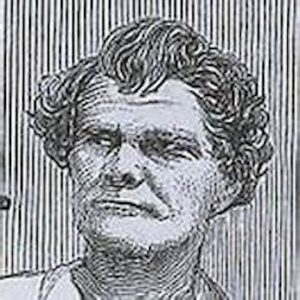
George Ashburn
*George Ashburn was born on this date in 1814. He was a 19th-century white white-American judge, Radical Republican, and Senate candidate.
George W. Ashburn was born in North Carolina and moved to Georgia around 1830. He married Georgia Ryley in 1843. They had one daughter. He opposed the Secession of Georgia. During the American Civil War, he was commissioned as a colonel in the Union Army. He was considered a scalawag by his white Columbus neighbors, and he worked with the Freedmen's Bureau and alongside Black leaders such as Henry McNeal Turner.
At the war's end, Ashburn returned to Columbus, Georgia, and was appointed a judge by the military Governor. In this capacity, he worked to remove the political disabilities of all disenfranchised Georgians. After President Abraham Lincoln's assassination in April 1865, Ashburn wrote a letter to Andrew Johnson stating, "The hand of God is in the assassination." Ashburn called to order the Georgia Constitutional Convention of 1867–1868, held in Atlanta, which also aimed at removing the obstructions placed on Black rights after the end of slavery. Ashburn authored the new Constitution's provisions that assured Blacks' civil rights. At the Convention, Ashburn suggested that the new Constitution should be implemented even if the people of Georgia did not concur.
His actions created several enemies across the South. Ashburn lived among the Black population and garnered attention from the Ku Klux Klan, which established their Columbus chapter on March 21, 1868, after a visit from Nathan Bedford Forrest. In the spring of 1868, Ashburn assembled an organization to support his election to the U.S. Senate after Georgia had been readmitted to the Union. On the night of March 30, 1868, Ashburn participated in a massive gathering of blacks and Republicans at Temperance Hall in Columbus, Georgia. Just after midnight, Ashburn was murdered at a house on the corner of 13th Avenue and 2nd Street by five well-dressed men wearing masks. He was the first murder victim of the Klan in the state.
During Ashburn's murder, Georgia was still under the military governorship of General George Meade. When he heard of the murder, Meade implemented martial law in Columbus, removing the mayor from office and ordering the immediate arrest of all suspects. The trial, beginning on June 29, gained national attention as over twenty persons were arrested and held at Fort McPherson. The prisoners consisted mostly of prominent white residents of Columbus. General Henry L. Benning and former Confederate Vice President Alexander Stephens agreed to represent the accused. Newspapers across the United States covered the assassination and trial.
The pro-Klan forces in the South capitalized upon the events, publishing a full-length book on the trial titled Radical Rule: Military Outrage in Georgia. The Federal government pushed for Georgia to ratify the Fourteenth Amendment, while the Georgia legislature resisted. The defenders of the Klan saw an opportunity for a bargain. On July 21, as the trial progressed, Georgia agreed to ratify the 14th Amendment in exchange for General Meade's termination of the prosecution of the murderers. All prisoners made bail and returned to Columbus. No one was ever prosecuted.